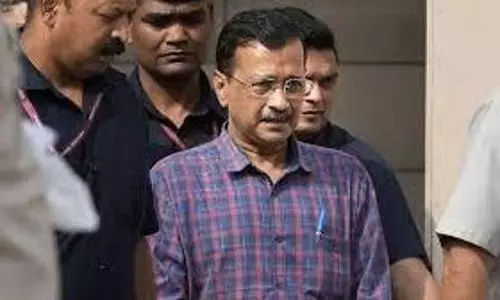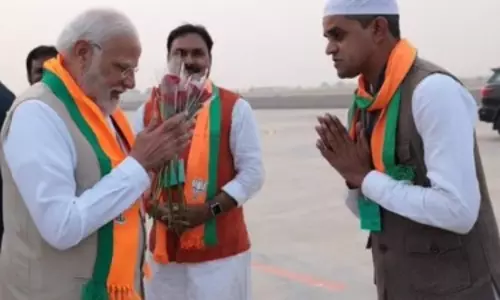
The Clean India Mission is not that clean
text_fieldsRepresentational image
"On 25 September, prime minister Narendra Modi received the Global Goal-keeper Award from Bill and Melinda Gates Foundation at New York, USA. The foundation, run by Microsoft founder Bill Gates, selected Modi for the award for having provided 500 million Indians with safe toilets under the Swachh Abhiyan scheme. The prime minister, in his acceptance speech claimed that the campaign conducted by India was unheard-of in the world and the scheme initiated by the government was taken up by the people and taken to its success. And two days later, at the UN General Assembly, he bagan his address by talking about the exciting message conveyed by India for the whole world, which built and handed over 110 million toilets in a span of five years.
Unfortunately, it was on the same day the Prime Minister received the award for ending open defecation that in Shivpuri district in Madhya Pradesh, two landlord brothers brutally killed two Dalit children for making open defecation. The two belonging to the Valmiki caste who do sanitation jobs including scavenging, 12-year old Roshni and her ten-year old brother Avinash became the victims because deprived of any toilet at home, they set out at dawn for the neighbouring farm and relieved themselves there. As per the government records, Shivpuri is a district that is 'open defecation free' and having toilets in all houses. Figures also show that 247 toilets were built in Bhaukhedi village as part of the Swachh Bharat campaign. But what the investigators of the dastardly crime discovered was that the actual practice was not tallying with the statistics on paper. According to data in the website of Swachh Bharat Abhiyan, in 2014 only three houses in Bhaukhedi had toilets. As per the 2011 census, the village had 269 residents. After the campaign, now 250 toilets have been built there. 19 households did not get the facility and that includes Manoj, the father of the lynched children. Bereft of cash, he approached the panchayat president when he got the curt formal reply: since his name did not figure in the base-line survey, he was not among the beneficiaries. Although those who were denied in this manner originally were later identified and included, that did not have a single member from Bhaukhedi. As for the toilets built, more than half of them were not in use. Since many of the pits dug did not have the width and depth, they were not usable. It is when all these facts remain that this district is listed among the open defecation-free districts by the government.
A voluntary organization, Institute of Labour Economics, that has been closely observing every development under the Swachh Bharat Abhiyan, says in its report released in January last that many of the declared areas have not been able to get completely free of open defecation. According to the study conducted focussing on four north Indian states, Bihar, Madhya Pradesh Rajasthan and Uttar Pradesh, 40 tp 50 per cent of villagers still use open space. This of course is lower than the earlier 70 per cent. Of ten households who did not have toilets in 2014, six got one each by the end of 2018. Statistics tell, however that those who use open spaces in spite of having toilets, still continue with the practice at the same scale. It is true that the Swachh Bharat Mission has started to bring about a fundamental transformation in the cleanliness habits of the people. But the propaganda to the effect that entire India became open defecation free with the provision of toilets under a set scheme, is not factual.
Further, it is not enough to have toilets; what the murder of the children in Bhaukhedi proves is that unless the impurities that eat into the society like caste-discrimination also get cured, things cannot be said to be all fine. In that village, the Yadav sections have been ruling over Valmiki sections and treating them like slaves with torture and at gunpoint. They even imposed on them the task of carrying buckets of human excreta and cleaning the premises. And Valmikis were terribly wrong in hoping that with the arrival of toilets through Swachh Bharat, they would no more have to carry human waste on their shoulders. When the new toilets got full, the task of clearing it also fell on them. And what drove the Yadav brothers to beat the children to death was also their caste-based intolerance towards the new generation getting enlightened and refusing to get engaged in menial jobs. And without purging the people's minds of this caste hatred, untouchability and contamination, the cleanliness campaigns have remained an overzealous endeavour to fill numbers and make the scheme appear successful. The Swachh Mission study says that in order to achieve the target within five years, the block and village-level officials have been suffering huge pressure and that includes fines and denial of public service right upto criminal case and imprisonment. It is on the basis of such figures eked out by pressuring them that the government boasts about cleanliness operations. In a nutshell, the intense campaign for eradication of open defecation exists only in its external façade, but not so much in cleanliness and sanitation.























